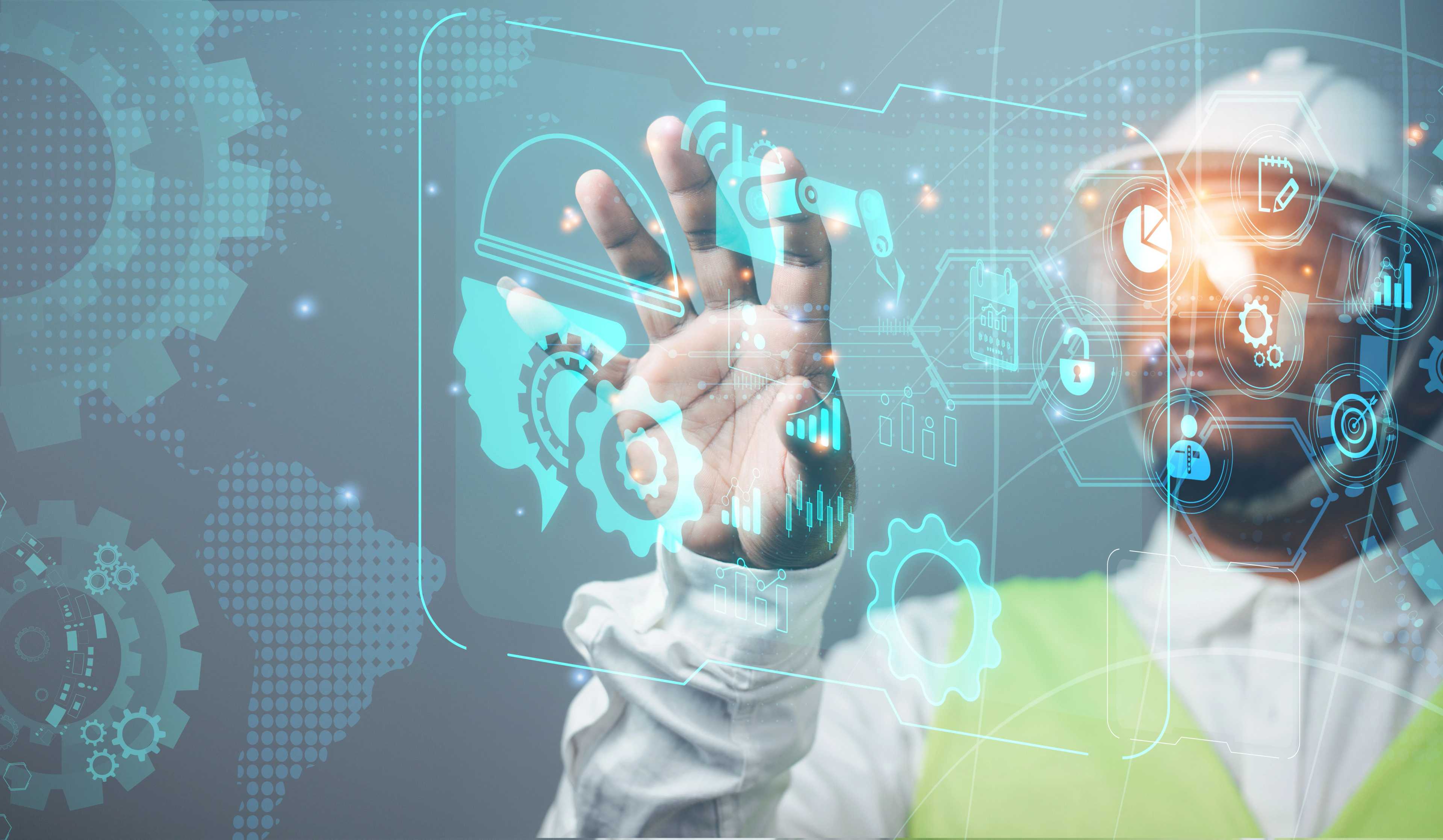As we see the rapid popularisation of artificial intelligence (AI), some may not realise that it has already been integrated into our daily lives for years now. AI is a part of our reality and is no longer considered a futuristic technology. It has become a tool used worldwide by individuals and businesses across several industries. Whether we agree with it or not, AI will not be slowing down anytime soon. It has remarkably influenced our lives and the way we work. It has uncovered a new era of possibilities. Just as it once was an unimaginable concept, AI is already on the way to paving a future more innovative than we can imagine.
In other words, AI has sparked a new revolution and it's only the beginning. Join us as we take you on a journey through the realm of everything AI. While this is only one stop on our journey, this blog will explore the various AI applications that have seamlessly become a part of our everyday lives. From social media and content recommendations to personalised streaming services, digital assistants, and transportation and navigation services. As we aim to uncover the ways AI is shaping our world, we will also delve into the speculations surrounding it.
AI in Social Media and Content
Do you ever wonder why you scroll through social media for hours on end? Or why certain ads or posts pop up after you've been talking/looking at them? Well this is no accident, the robots are just doing their jobs! It's no secret that social media has become an integral part of our lives and it’s not going anywhere anytime soon. Thanks to AI and its algorithms, it's difficult not to scroll for hours on end. AI has played a role in changing the social media landscape for years. By analysing data based on our likes, interests, behaviours, preferences, and browser history, AI can personalise our social media feeds and generate endless content that keeps us engaged and entertained.
Content Personalisation
Automated content creation tools are the newest form of AI in social media. They are becoming increasingly popular as they analyse social media posts across several platforms and create the best content to keep the audience engaged. From automatically generating content to advertisements and personalising recommendations, AI is completely reshaping the world of social media and how we experience it.
Chatbots
You may not realise how often you come across or use AI on social media platforms or websites. Do you ever notice a message that pops up in the corner of your screen? These are all AI-powered chatbots! They appear across several social media applications and business websites to help with any customer service interactions. This enhances user satisfaction by making it more efficient and faster to get answers to your questions. Additionally, across social media, it's hard to set apart what's real and what's not.
Detecting Fabricated Content
While AI isn't fully automated to detect everything that may be falsified, it can detect some. As deep fakes have been on the rise, AI can detect such content across social media. The algorithms can identify any content that has been fabricated or manipulated. Therefore, helping decrease the amount of misinformation. AI brings several benefits to the world of social media. However, there are still quite a few challenges that need to be addressed across social media to ensure AI is being used ethically and responsibly. Relating to issues such as data security, privacy, algorithms, and misinformation.
Personalised Streaming Services
You may be wondering how streaming services such as Netflix, Prime Video, or Youtube use AI. Well, it's quite simple actually, streaming services have adopted AI for a while now. The way steaming services incorporate AI is very similar to the way it is implemented across social media. Mainly by providing users with a better overall experience and giving them personalised content recommendations based on their watching habits, likes, and dislikes. AI can curate bespoke lists of TV shows and movies, offering subscribers a more tailored experience. However, below we will explore other ways AI is taking streaming services to a whole new level.
Content Tagging and Metadata
Apart from content recommendations and enhancing user experiences, AI also enables content tagging, metadata, pricing strategy, revenue optimisation, and content moderation. Content tagging and metadata generation analyse different components of media such as audio, video, and text. With this, the algorithms can organise content categorically and make for more efficient searchability by automatically generating descriptive tags, categorising content, and extracting meaningful metadata.
Content Revenue
On top of that, AI assists with generating revenue and offers streaming services with pricing strategies. Streaming platforms can adjust prices based on different factors such as user behaviour, demand patterns, and market conditions. This allows them to maximise revenue by finding the optimal price points that balance profitability and user satisfaction. By monitoring and analysing user engagement, subscription rates, and other relevant metrics, AI algorithms can identify opportunities for revenue growth. While during periods of low demand, AI has the ability to suggest discounts or promotional offers to attract more viewers and generate revenue.
Content Moderation
Content moderation plays a vital role in maintaining a safe and secure streaming environment across streaming platforms. Thanks to the AI algorithms and their advanced machine learning techniques, these algorithms can automatically detect and flag content that violates its content policies. This ensures that inappropriate or copyrighted material doesn't appear on the streaming platform. In addition to this, AI algorithms can recognise copyrighted material, such as movies, TV shows, or music, and identify cases where it may be used without proper authorisation. This also helps streaming services comply with copyright laws and prevent distributions of unauthorised copyrighted content.
Thanks to AI, users are provided with a unique streaming experience. This generates a higher customer satisfaction rate, an increase in content consumption, and efficient operations within the streaming industry. With the help of AI, streaming services can offer a more bespoke and personalised experience to users.
Digital Assistants
Do you remember when Apple came out with Siri? This was back in October 2011 and revolutionised the way we use our phones. Since then, many similar products have been released. Siri, Alexa, Cortana, and their other counterparts are all AI powered! This goes to show that AI has been in the works long before some realised it.
Functionalities
Siri is one of the top market leaders in digital assistants and can answer a load of different questions, use voice-activated device control, and schedule appointments. As for Amazon's Alexa, she appears on the increasingly popular voice-activated echo dot. These devices can be used as music speakers but don't let that fool you. It can also do a range of tasks like control smart home devices, order products, and do various voice-commended tasks. Google Assistants are at the top of the market along with Siri as they function almost the same. Except they are compatible with Google's services and smart home devices. Microsoft Cortana is the digital assistant across Microsoft products. It provides task automation and voice commands.
Concerns
While digital assistants are very convenient, there are a lot of concerns surrounding them. As they have evolved, consumers started developing concerns about their privacy and security. It is important to be aware of the privacy policy behind your digital assistant considering how it involves collecting and analysing data. As digital assistants have become increasingly integrated into our daily lives it is crucial to ensure the security of our personal information.
Transportation and Navigation Services
Self-driving cars have become one of the most significant applications of AI in the last few years. Isn't it crazy how years ago we couldn't fathom the idea of self-driving cars? The future is now and is evolving the transportation industry faster than ever.
Self-driving Cars
Through a combination of sensors, computer vision, and machine learning, autonomous vehicles can perceive their environment, navigate roads, and make driving decisions, potentially leading to safer and more efficient transportation. There is a wide range of companies in the works of adopting self-driving cars or trucks to deliver goods. Apart from self-driving cars, AI has also had a significant impact on traffic management and navigation services.
Navigation Services
AI uses real-time data from sources like GPS, traffic cameras, and sensors to predict traffic patterns and adjust them accordingly to minimise traffic, optimise flow, and reduce the time it takes to get from one location to another. AI-driven navigation systems, such as GPS applications, use machine learning algorithms to provide real-time route guidance and optimise travel routes. These systems can analyse traffic data and historical patterns, to calculate the fastest routes, helping drivers shed some time off their journeys.
Concerns
Overall, AI's impact on transportation and navigation services has been quite significant. While there are concerns surrounding self-driving cars, the industry is rapidly transforming, making transportation more efficient, safer, and sustainable. AI is slowly revolutionising the way we commute, deliver goods, and manage transportation systems.
In conclusion, AI has been a part of our everyday life for years now. As it is evolving, it is also reshaping the way we live, work, and interact. It is revolutionising industries and has enhanced user experiences across several industries. From automatically generating social media content, advertisements and personalising recommendations, to automating tasks and improving efficiency in the transportation industry. AI does it all. Despite all the benefits, there are still several concerns surrounding AI such as data privacy, misinformation, and ethical standards. It is essential to address these concerns as AI won't be slowing down anytime soon. AI has made a profound impact on our world in many ways and will continue to shape it for years to come. As technology continues to advance so will AI, paving the way for new possibilities.
Check out our website for more information on AI and join us as we take on the world of AI together!


